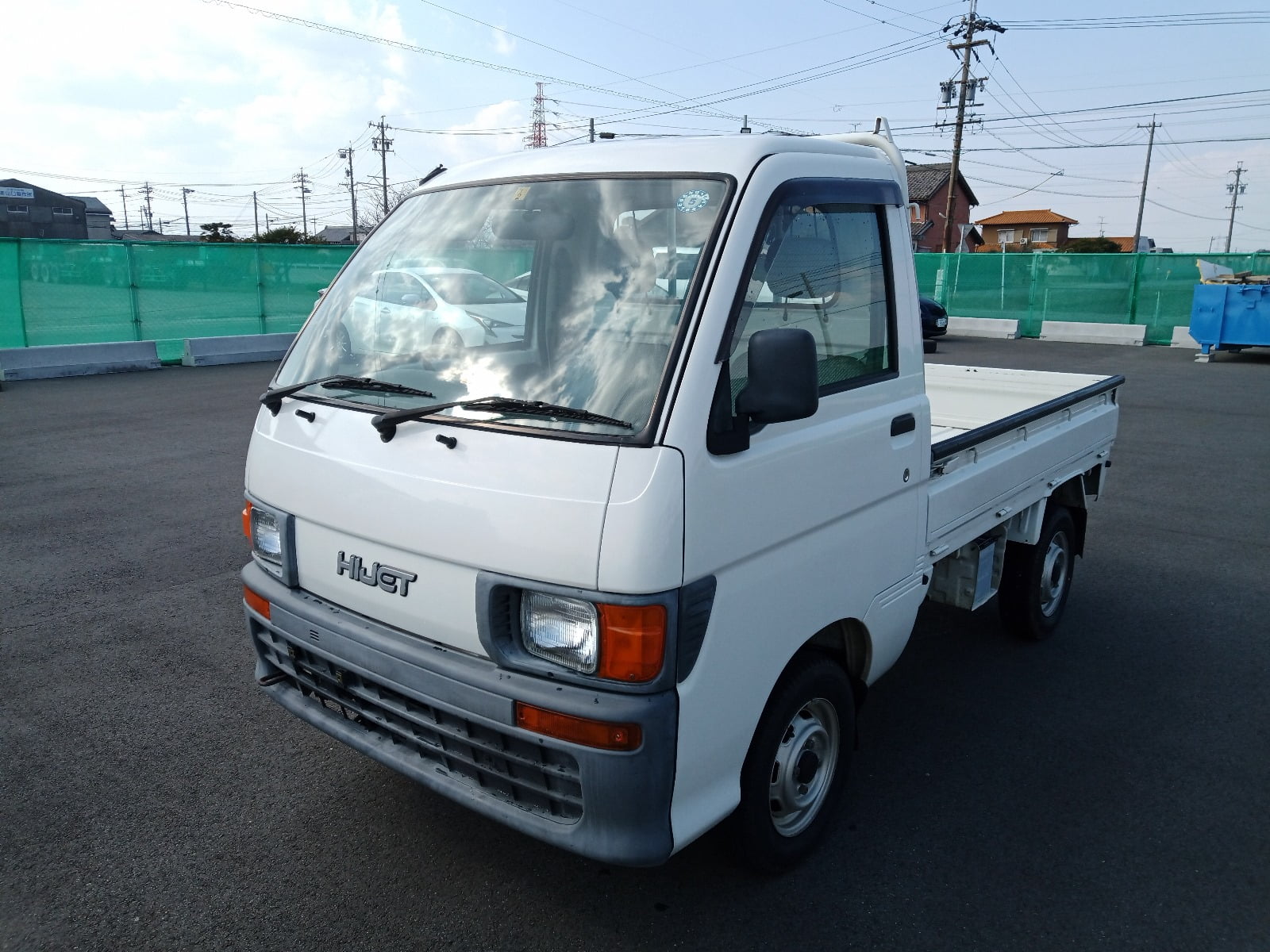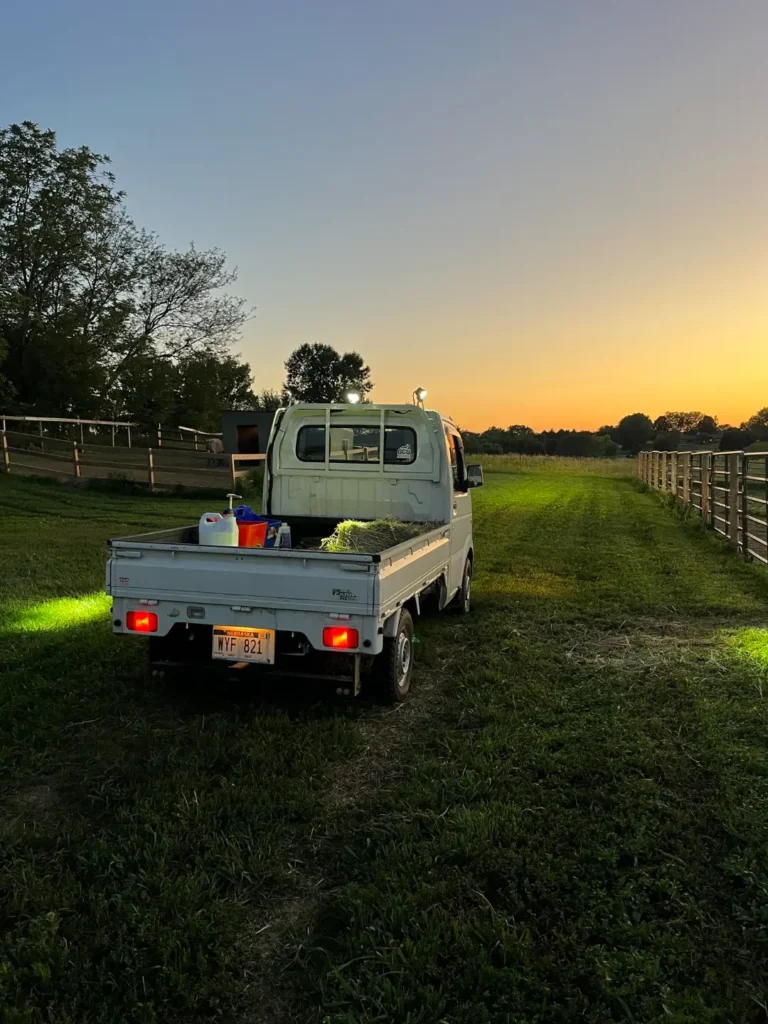Support stopping Georgia’s ban on Kei trucks by signing the petition!
https://www.change.org/p/stop-georgias-ban-on-mini-trucks
Georgia’s recent ban on Kei trucks, those compact Japanese utility vehicles, has stirred up quite a controversy. The Department of Revenue’s decision to reclassify these vehicles as Unconventional Motor Vehicles has left a lot of Kei truck owners scratching their heads in confusion and frustration. This comprehensive guide will help you navigate the complex details of this ban, compare it with policies in other states, and understand its economic, legal, and environmental implications. If you’re a Kei truck owner or enthusiast, you’ll find it useful to know the reasons behind the ban, its consequences, and potential revisions that could change the future of these versatile vehicles on Georgia’s roads. So, let’s equip ourselves with knowledge and join the conversation for reasonable legislation surrounding Georgia’s Kei trucks.
Introduction to Georgia’s New Ban on Kei Trucks
If you’re in Georgia and own a Kei Truck, you’ve probably heard about the recent legislative shift that’s causing quite a stir. The Department of Revenue (DOR) has reclassified Kei Trucks, compact utility vehicles, as Unconventional Motor Vehicles. This change has led to a ban on registering and tagging these vehicles as standard trucks, causing significant disruption for Kei Truck owners like you.
Recent Legislation Changes
The new legislation hasn’t just affected the status of Kei Trucks, it’s also expanded its scope to include all imported vehicles that haven’t been subjected to the Federal Motor Vehicle Safety Standards (FMVSS). Interestingly, while vehicles over 25 years old are typically exempt from FMVSS, Georgia has chosen not to honor this exemption, further complicating the registration process for these vehicles. The DOR has even started revoking tags from owners whose trucks have been found to be registered, adding to the frustration and confusion.
What’s particularly perplexing about this change in legislation is that Kei Trucks are fully equipped with all the necessary operating equipment required by Georgia law. This includes brake lights, turn signals, high/low headlights, and tag lights, all of which are stipulated in OCGA Title 40 Chapter 8 Article 1. Despite meeting these requirements and being federally recognized, imported, and taxed as trucks, Georgia has refused to acknowledge them as such.
Who is Affected?
The impact of this legislation is felt most acutely by Kei Truck owners in Georgia. You’re now unable to register and tag your vehicles as you would a standard truck. This is particularly frustrating given that Kei Trucks are permitted registration and tags in all surrounding states. This means that out-of-state Kei Trucks can legally operate on Georgia roads, while local owners like you are denied the same right.
Kei Trucks, sometimes referred to as Mini Trucks, are compact vehicles primarily manufactured in Japan. They’re designed as cargo trucks and are equipped with small, economical engines that can achieve around 45 miles per gallon. Depending on the model, they can reach top speeds between 65 and 80 miles per hour. These trucks are versatile and economical, making them ideal for a range of uses, from agricultural work on farms to delivery services in metropolitan cities.
In response to the new legislation, Kei Truck owners are calling for common-sense changes to address the inconsistencies in Georgia’s treatment of these vehicles. They propose that Kei Trucks be allowed to be titled and registered as any other vehicle, abiding by all operating equipment laws. They also suggest issuing a “Non-Interstate Use” tag if necessary and requiring insurance, just like any other vehicle. In essence, they believe Kei Trucks should be granted the same rights and responsibilities as other vehicles.
The current situation has left many Kei Truck owners feeling frustrated and marginalized. You’ve invested in these vehicles, paid taxes on them, and ensured they meet all necessary safety and operational requirements. Yet, you’re now being told that your vehicles aren’t recognized as trucks and can’t be registered as such. This not only limits your use of these vehicles but also impacts your ability to sell them out of state, as you lose the title in the process.
Kei Truck owners hope that Georgia will reconsider its stance and allow these versatile, economical vehicles to be recognized and registered as the trucks they are. After all, these trucks aren’t just great show cars but also practical, efficient vehicles that deserve to be on Georgia roads.
Reasons Behind the Ban on Kei Trucks in Georgia
Safety Concerns
The DOR’s decision to categorize Kei Trucks as unconventional seems to be rooted in safety apprehensions. Despite these vehicles being equipped with all standard safety features found in regular passenger vehicles, the state refuses to acknowledge them as trucks, leading to widespread discontent among owners.
Economic Implications
The prohibition has far-reaching economic consequences. The inability to sell these vehicles out of state due to title loss renders them virtually worthless in Georgia, despite their federal recognition and taxation as trucks. This has sparked a demand for sensible legislation that would permit these trucks to be titled and registered in the same manner as other vehicles.
Legal Considerations
The legal intricacies of this issue are multifaceted. The state’s refusal to acknowledge the FMVSS exemption for trucks older than 25 years and the DOR’s actions of revoking tags from owners add layers of complexity. The fact that Kei Trucks are permitted registration and tags in neighboring states, allowing them to be driven on Georgia roads due to reciprocity laws, while Georgians are denied the same privilege, has led to calls for legislation that would treat Kei Trucks like any other vehicle.
Consequences of the Kei Truck Ban
The prohibition on Kei trucks has had a profound influence on various facets of life in Georgia. The DOR’s decision to categorize these vehicles as Unconventional Motor Vehicles has led to a ripple effect that has touched local businesses, the auto marketplace, consumers, and potentially even highway traffic and accident rates.
Effects on Local Businesses
The ban has been particularly harsh on local businesses, notably those in the agricultural sector and metropolitan delivery services. The prohibition on registering and tagging these trucks in Georgia has rendered them virtually useless for these businesses, leading to escalated operational costs and logistical hurdles.
Changes in the Auto Marketplace
The prohibition has also instigated significant shifts in the auto marketplace. With the ban in place, alternatives to these compact, fuel-efficient, and versatile vehicles have to be sought, leading to a shift in demand. Furthermore, the inability to sell these trucks out of state due to loss of title has added to the predicament for owners and potential buyers.
Consumer Reactions
The prohibition has been met with strong reactions from consumers, particularly those who own Kei trucks. Many owners have expressed frustration and disappointment, not only because they can’t use their vehicles as intended, but also because they’ve paid taxes and insurance for these trucks. The fact that these trucks are allowed registration and tags in surrounding states, but not in Georgia, has added to the sense of injustice. Owners are now calling for common sense legislation to rectify the situation.
Impacts on Highway Traffic and Accident Rates
The impact of the ban on highway traffic and accident rates is yet to be fully understood. However, it’s worth noting that Kei trucks, despite their small size, come equipped with all the necessary operating equipment required by Georgia. The ban could potentially lead to an increase in larger, less fuel-efficient vehicles on the road.
Comparisons to Kei Truck Policies in Other States
Regulations in Surrounding States
The disparity in the treatment of Kei trucks between Georgia and its neighboring states is a source of frustration for local owners. The DOR’s classification of these vehicles as Unconventional Motor Vehicles has led to a unique predicament for Georgia residents, while owners in surrounding states face no such restrictions.
National Trends in Small Vehicle Regulation
The national perspective on small vehicle regulation paints a different picture than what is currently seen in Georgia. Despite Kei trucks being federally recognized and insurable as trucks, Georgia’s refusal to acknowledge them as such stands in contrast to the broader trend.
Florida’s Policy on Kei Trucks
The fact that Kei trucks are permitted registration and tags in all surrounding states, including Florida, suggests that there are feasible models for Georgia to emulate. The proposed changes for Georgia include measures that are already in place in these states.
As owners, we advocate for legislation that would align Georgia with the national trend and the policies of surrounding states, allowing Kei trucks to be recognized and registered as any other vehicle.
Looking Forward: The Future of Kei Trucks in Georgia
Possible Amendments to the Ban
Despite the current restrictions, there’s potential for modification. Advocates are pushing for changes that acknowledge the unique attributes and advantages of Kei trucks.
The suggested modifications encompass titling and registering Kei trucks in line with other vehicles, adhering to all equipment laws, and mandating insurance. If deemed necessary, a “Non-Interstate Use” tag could be issued. This would equate them with other vehicles, a reasonable request given their compliance with OCGA Title 40 Chapter 8 Article 1.
Projections for the Automotive Market
The current restrictions on Kei trucks could influence the state’s automotive market. The non-recognition of these vehicles could deter their importation and utilization, potentially affecting the market’s diversity and competitiveness. However, the policies of neighboring states, which permit the registration and tagging of Kei trucks, could sway Georgia’s position in the future.
How Georgian Consumers and Businesses Can Adapt
In light of the current restrictions, Georgian consumers or businesses that depend on Kei trucks must find ways to adjust. This could involve exploring alternative vehicle options that satisfy your requirements and align with Georgia’s vehicle regulations. Alternatively, you could support the suggested modifications to the ban, emphasizing the trucks’ compliance with equipment laws and their insurability.
Mitigating Long-Term Consequences
If left unaddressed, the long-term effects of the ban could be substantial. Owners could find their investments, on which they’ve paid taxes and insurance, become redundant. Furthermore, the inability to sell these vehicles out of state due to loss of title could result in financial setbacks.
To alleviate these potential effects, it’s vital to continue advocating for legislative alterations that acknowledge the worth and legality of Kei trucks. These vehicles, with their unique combination of compactness, versatility, and efficiency, merit a place on Georgia’s roads.
Kei Trucks Deserve Recognition and Fair Legislation
In the end, the unfair laws affecting us Kei Truck owners in Georgia clearly overlook the value and efficiency we bring to the roads. This situation pushes us, as a community, to stand up for fairness and recognition for these versatile, economical vehicles.
Don’t worry, we’re not giving up. We’ll keep pushing for sensible laws that recognise the full functionality, safety, and utility of Kei Trucks.
To all you Georgian Kei Truck owners and supporters, your voices matter. Together, we can drive the change needed to get these deserving trucks back on Georgia’s roads where they truly belong. Remember, we’re stronger together. When we work as a team, we can achieve great things.






















2 comments
Steve shirley
I own a poultry farm and use it everyday it would save me a lot of time if I could just run down the road and fuel up instead of hauling several gas cans in my full size truck. My mini truck is a 2019 it has most all the safety features a modern car has mine even has airbags. I don’t have a title, I only have import documentation.
John Mole
These trucks are safer than any motorcycle. I need mine for farm use. Going to town getting parts and feed etc. I’ve contacted my state representatives for help.